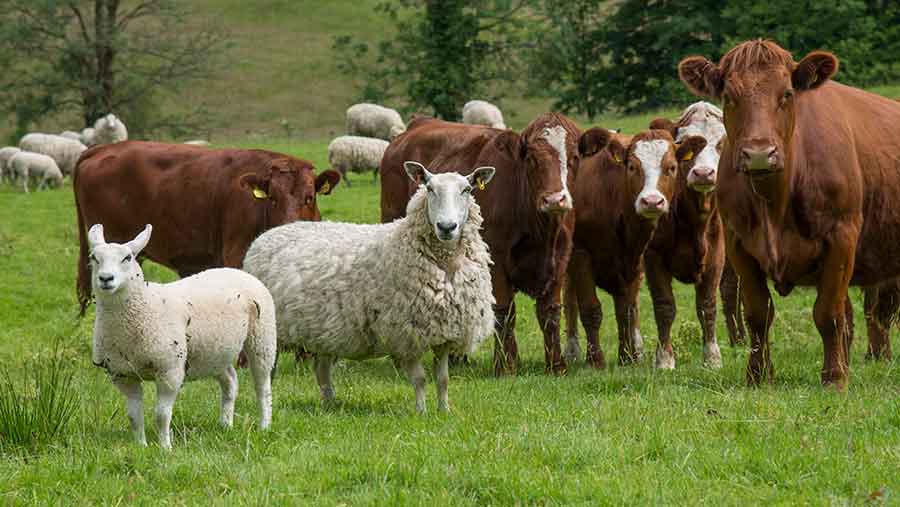Farm incomes could halve under bad Brexit deal, warns AHDB
 © FLPA / John Eveson/REX/Shutterstock
© FLPA / John Eveson/REX/Shutterstock British farmers are being urged to take action now to prepare their businesses for Brexit, or risk seeing their profits whittled away in the face of falling subsidies and increased overseas competition.
A new report from the AHDB – “Brexit scenarios – an impact assessment” – suggests average farm profitability could drop from £38,000 to £15,000 a year in the worst case scenario as a result of Brexit.
But, even though farm incomes generally are forecast to come under pressure, different sectors will be affected to differing extents, while the top 25% of businesses will remain viable, regardless of scenario.
See also: Farmers trade blows over Brexit impact
“This analysis underlines the fact that performance matters,” said AHDB market intelligence director Phil Bicknell.
“As individual farms, we know that we can’t determine policy, but we can recognise that performance is key to preparing for the challenges ahead.”
Farmers are therefore advised to learn from the high-performing group and use them as a benchmark for what is achievable in the way they run their farm businesses.
“Do nothing and businesses that are currently profitable run the risk of heading into the red,” warned Mr Bicknell.
Three scenarios
The AHDB analysis, due to be launched at AHDB’s Grain Market Outlook conference on Wednesday (11 October), considers three possible scenarios:
They include:
- A “business as usual” approach, with current levels of support and a free-trade agreement with the EU
- A “liberal” approach to trade, with tariff-free access to the UK from both the EU and the rest of the world, and reduced support
- A “cliff-edge Brexit”, reverting to WTO tariffs on EU and non-EU trade, and with dramatically reduced support payments
The report also considers the impact of labour availability, with little change under the first scenario, but with reduced availability in the “trade liberalisation” and “cliff-edge” scenarios.
Impacts
The report notes that, under the “business as usual” scenario (and assuming the UK succeeds in negotiating a free-trade deal with the EU), average farm incomes could actually increase – from £38,400 to over £41,000.
This is primarily the result of increased trading costs – the result of the UK being outside the single European market – which would push up the price of imported food and so allow UK farmgate prices to rise.
But average farm incomes are predicted to fall to just £15,400 with trade liberalisation, as lower-priced imports are sucked in from places such as New Zealand and Brazil.
Similarly, incomes are expected to drop under the “cliff-edge” scenario – to £20,160 on average. Even though tariffs might allow some prices to rise, the dramatic drop in farm support, put at 75% in this scenario, would outweigh the benefits.
Most vulnerable
The report suggests that farm sectors which are most dependent on farm subsidies and on exports will be most vulnerable – with cereals and lowland beef and sheep singled out.
But some sectors, like dairy and pigs, could actually benefit from rising prices in some scenarios – reflecting their lower dependence on subsidies and higher prices of imports.
The NFU, which next week starts a roadshow with AHDB to explain the research to farmer members, said the findings should not be seen as predictions.
NFU EU exit adviser Lucia Zitti said: “We welcome this piece of work as it provides further evidence with regards to the impacts of Brexit on the agriculture sector and the potentially devastating effect that some of our farming sectors could face, depending on government policy decisions.”
- All AHDB’s analysis on the implications of Brexit for UK agriculture and horticulture can be downloaded at the organisation’s Brexit web page.
